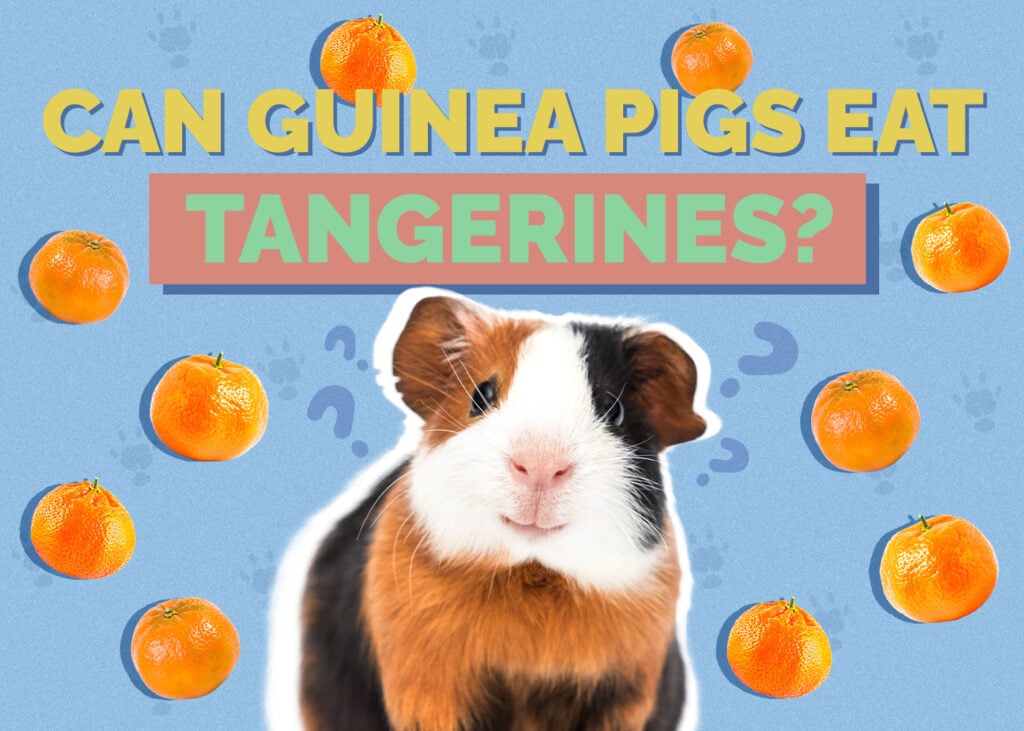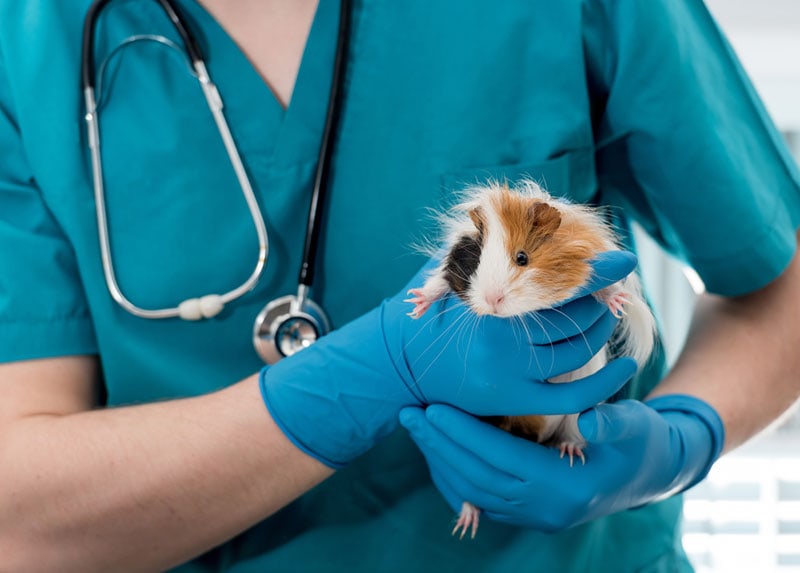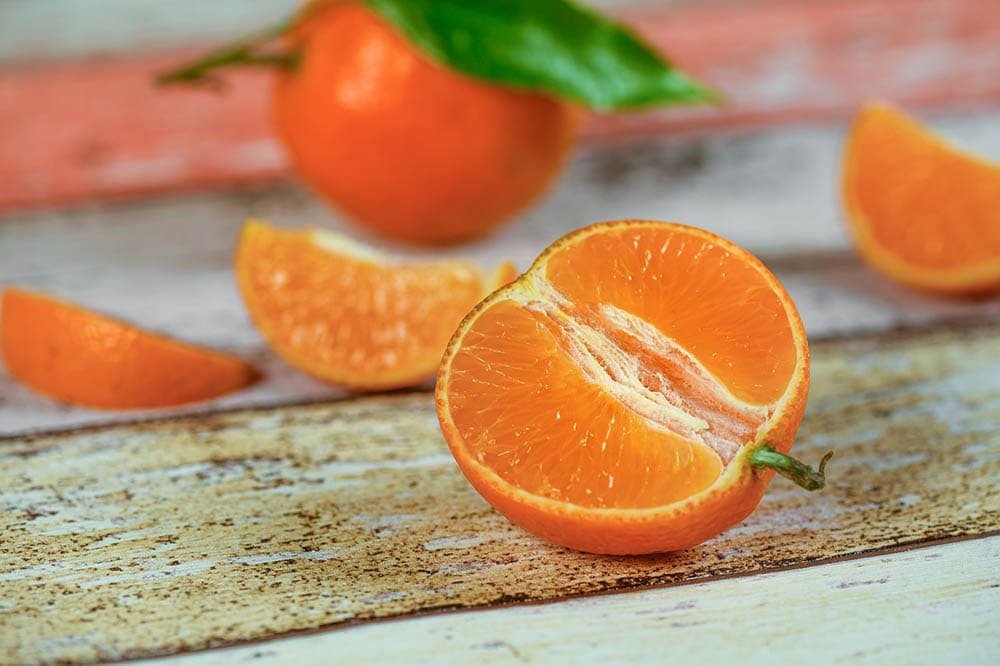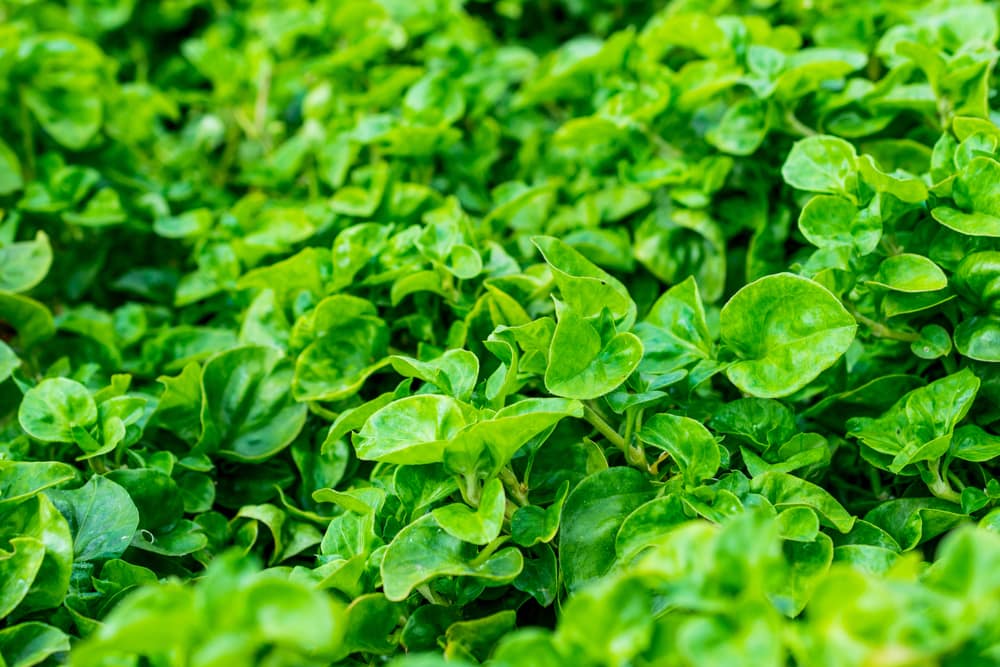Can Guinea Pigs Eat Tangerines? Vet Approved Nutrition Facts & FAQ
By Ashley Bates
Updated on

Click to Skip Ahead
Our guinea pigs love munching on a variety of sweet snacks. While unlimited good quality hay and a commercial diet that is specifically designed for guinea pigs are the most quality substances you can feed, they need fresh items to choose from too.
Tangerines are yummy little citrus fruits that offer a variety of health benefits, including a load of vitamin C! Since our little guinea pigs benefit so much from this added vitamin, is a tangerine suitable for consumption?
The short answer is yes! Guinea pigs can eat tangerines. Let’s get into the details below.
Check With Your Vet First
We want to be clear that our advice is no substitution for veterinary guidance. If you have any questions about your guinea pig eating tangerines or any other food item, contact your vet’s office for the green light.
Your vet will have a full history of your guinea pig and all of their health conditions. If they think that tangerines are unsuitable for any reason, they will advise against it and give you a list of more favorable snack items.

Guinea Pigs Can Occasionally Enjoy Tangerines
Tangerines are a scrumptious fruit that delivers powerful vitamins and minerals to your cavy’s diet. They offer hydration, nutrients, and fiber to help your little guy’s system. They will also enjoy the sweet taste of each delicate section.
But like anything else—tangerines work best in moderation. In no way should they replace your piggy’s standard commercial diet. And no—they can’t survive on fruit only, even if they are herbivorous critters. Fruit should only be provided as an occasional treat and not a mainstay of their diet.
Tangerine Nutrition Facts
| Amount Per: | 1 small (76g) |
| Calories: | 3 |
| Protein: | 61 g |
| Carbohydrates: | 1 g |
| Sugars: | 06 g |
| Fiber: | 1.37 g |
| Calcium: | 21 mg |
| Iron: | 11 mg |
| Magnesium: | 12 mg |
| Phosphorus: | 12 mg |
| Sodium: | 5 mg |
| Zinc: | 05 mg |
| Vitamin A: | 5618.7 IU |
| Beta carotene: | 118 mcg |
| Alpha Carotene: | 76.8 mcg |
| Beta cryptoxanthin: | 309 mcg |
| Lutein + zeaxanthin: | 105 mcg |
| Vitamin C: | 3 mg |
| Niacin: | 28 mg |
| Folate: | 12.2 mcg |
Benefits of Tangerines for Guinea Pigs
Here are the specific vitamins and minerals inside of Tangerines and how they benefit your little piggy’s body.
Calcium
Calcium is responsible for bone and teeth health. It also plays a vital role in muscle contraction, heartbeat regulation, and nervous system function.

Phosphorus
Phosphorus aids the body in using carbohydrates and fats for energy. It also makes protein for growth and development as well as cell reparation.
Vitamin C
Like humans, guinea pigs don’t make vitamin C on their own. You will need to supplement them with various types of fresh foods and ensure their daily diet contains it as well. Vitamin C is responsible for the maintenance of skin, joints, and gum.
Vitamin A
Vitamin A is fat-soluble and crucial for excellent vision, immune system regulation, reproduction, and overall development. Vitamin A also helps organs function as they should.
Beta Carotene
Beta carotene is what is responsible for promoting that rich orange color that tangerines have. The body converts beta carotene to vitamin A, helping with overall eye and vision health, a strong immune system, and healthy skin.

Downfalls of Tangerines for Guinea Pigs
When you give your guinea pig proper portions of tangerines, it doesn’t usually have any negative impact on the body. However, if portions are too high or their regular diet is out of balance, it can cause a few different health concerns.
Bladder and Kidney Stones
Guinea pigs have very sensitive systems. If they eat too many tangerines, it can lead to bladder and kidney stones due to excess vitamin C, which can be very painful for your guinea pig.
Signs of bladder and kidney stones include:
- Bloody urine
- Dripping urine
- Wet genital area
- Vocalizing while urinating
- Hunched posture
- Weight loss
- Depression
- Lethargy
Once your guinea pig starts to get kidney or bladder stones, they frequently recur. There are ways you can prevent recurrences from happening with environmental, dietary, and supplemental lifestyle changes.
Gastrointestinal Upset
Tangerines are highly acidic. While this won’t matter in small portions, large quantities can upset the general balance of your guinea pig’s gastrointestinal tract. If they eat too many acidic fruits, it can also cause sores to develop inside their mouths, which can be very painful.
Excess Sugar Content
Tangerines are pretty high in sugar. For this reason, it should be an occasional snack and definitely not a daily staple for your piggy. Too much sugar can throw off their gut balance and cause a whirlwind of health issues to develop. It can also be very bad for their teeth.

Do Guinea Pigs Like the Taste of Tangerines?
Most guinea pigs will very much enjoy the taste of a juicy tangerine. These food items are high in sugar, making them even more irresistible for your group of cavies. So your little piggies will be sure to gobble them up with no problem.
How Much Tangerine Can You Offer Your Guinea Pig?
You can feed your guinea pig a small amount of tangerine once to twice a week. You should only give one segment of the tangerine to your piggies at a time to not overload them with acid or sugar.
Cut the section into smaller manageable chunks to prevent difficulties in chewing.

Can Guinea Pigs Eat All Citrus Fruits?
Guinea pigs can eat most citrus fruits except for extremely acidic selections like lime and lemon. If you have any questions about specific fruits, here is a very useful chart from GuineaDad.
Final Thoughts
You can give your guinea pig a couple of sections of tangerine on occasion. They can benefit from the extra shot of vitamin C and will surely enjoy the fresh flavor. Just make sure not to make a habit out of it.
Tangerines are sugary, acidic, and can potentially upset their dental health and gastrointestinal tract. Too much vitamin C can also cause bladder and kidney stones. As long as you portion correctly, they should be able to enjoy these bright orange little fruits without a problem.
Featured Image Credit: Erol Ahmed, Unsplash













